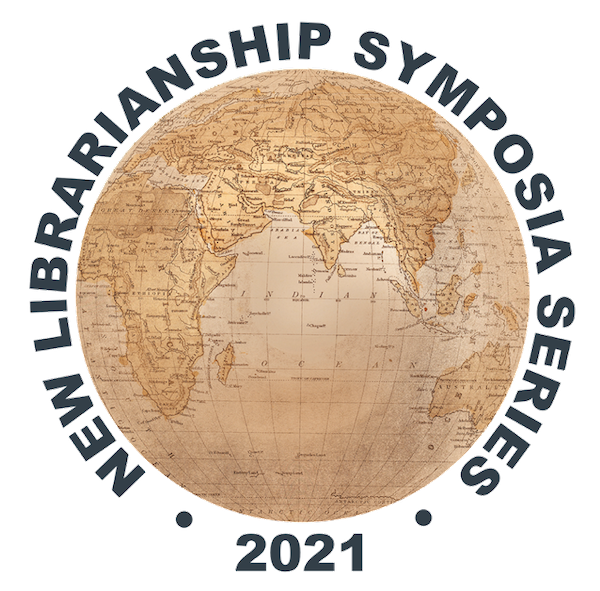Be my Guest! From Welcoming to Hospitality in Libraries
Submission Type
Paper Abstract Submission
Symposium Selection
Equity, diversity, and inclusion
Keywords
Inclusion, Diversity, Narratives, Participation, Care, Hospitality, Crisis
Abstract
Conceived as guarantees of inclusion (D. Lankes, 2011), participatory practices in libraries have been developing exponentially since 2010. Online collaborative maps on local history, collective design of library spaces, collaborative acquisitions, etc., participation allows the library to listen to the diversity of patrons and more generaly inhabitants. At the same time, legitimate claims to listen the speeches and stories of minorities, as we can see in the field of native studies (Stiegliz, 2019) or of LGBTQ studies (Agié-Carré et al., 2017) for example, invite libraries to pay more attention to personal narratives and mobilized knowledge (Nez, 2012, 2013) and to seize this opportunity to put cultural rights into action (IFLA, 2019). Finally, this year and the situation related to the pandemic and lockdown has demonstrated and highlighted the ability of libraries to care for the most vulnerable with great empathy. The services developed during the lockdowns demonstrated how caring is at the heart of the social role of libraries (Garner et al., 2021).
However, there are several limits to this positive dynamic towards inclusion and diversity. Participatory practices have not led to the integration of collectively produced knowledge into the library's collections (Bats, 2019). The implementation of cultural rights is often reduced to animations of valorization of different cultures rather than strong policies for and with different minorities (Lundin, 2021). Care ethics is still not widely used in libraries, despite experiments on care-based evaluation of public service design in libraries (Martel, 2017). In this context, the inclusion work in libraries seems to need to be questioned: is the current approach to welcoming words, stories and people sufficient to meet these expectations and demands for inclusion and diversity?
In this paper, through the methodological presentation of an awareness-raising project on climate emergencies, based on the consideration of lay knowledge, mobilized knowledge and people in vulnerable situations, we will study the relevance of the notion of hospitality to renew the approach of welcoming in libraries. We will resituate this notion on the one hand in relation to the librarian issues of bibliographic transition and the knowledge commons and on the other hand in relation to the political issues of the role of libraries in crisis situations. Finally, we will show the paths that this notion opens up in terms of knowledge legitimization, community literacy and documentary hospitality.
With this paper we hope to better identify the critical factors of inclusive library policies and subsequently propose directions for the renewal of welcoming practices in libraries.
Be my Guest! From Welcoming to Hospitality in Libraries
Conceived as guarantees of inclusion (D. Lankes, 2011), participatory practices in libraries have been developing exponentially since 2010. Online collaborative maps on local history, collective design of library spaces, collaborative acquisitions, etc., participation allows the library to listen to the diversity of patrons and more generaly inhabitants. At the same time, legitimate claims to listen the speeches and stories of minorities, as we can see in the field of native studies (Stiegliz, 2019) or of LGBTQ studies (Agié-Carré et al., 2017) for example, invite libraries to pay more attention to personal narratives and mobilized knowledge (Nez, 2012, 2013) and to seize this opportunity to put cultural rights into action (IFLA, 2019). Finally, this year and the situation related to the pandemic and lockdown has demonstrated and highlighted the ability of libraries to care for the most vulnerable with great empathy. The services developed during the lockdowns demonstrated how caring is at the heart of the social role of libraries (Garner et al., 2021).
However, there are several limits to this positive dynamic towards inclusion and diversity. Participatory practices have not led to the integration of collectively produced knowledge into the library's collections (Bats, 2019). The implementation of cultural rights is often reduced to animations of valorization of different cultures rather than strong policies for and with different minorities (Lundin, 2021). Care ethics is still not widely used in libraries, despite experiments on care-based evaluation of public service design in libraries (Martel, 2017). In this context, the inclusion work in libraries seems to need to be questioned: is the current approach to welcoming words, stories and people sufficient to meet these expectations and demands for inclusion and diversity?
In this paper, through the methodological presentation of an awareness-raising project on climate emergencies, based on the consideration of lay knowledge, mobilized knowledge and people in vulnerable situations, we will study the relevance of the notion of hospitality to renew the approach of welcoming in libraries. We will resituate this notion on the one hand in relation to the librarian issues of bibliographic transition and the knowledge commons and on the other hand in relation to the political issues of the role of libraries in crisis situations. Finally, we will show the paths that this notion opens up in terms of knowledge legitimization, community literacy and documentary hospitality.
With this paper we hope to better identify the critical factors of inclusive library policies and subsequently propose directions for the renewal of welcoming practices in libraries.


